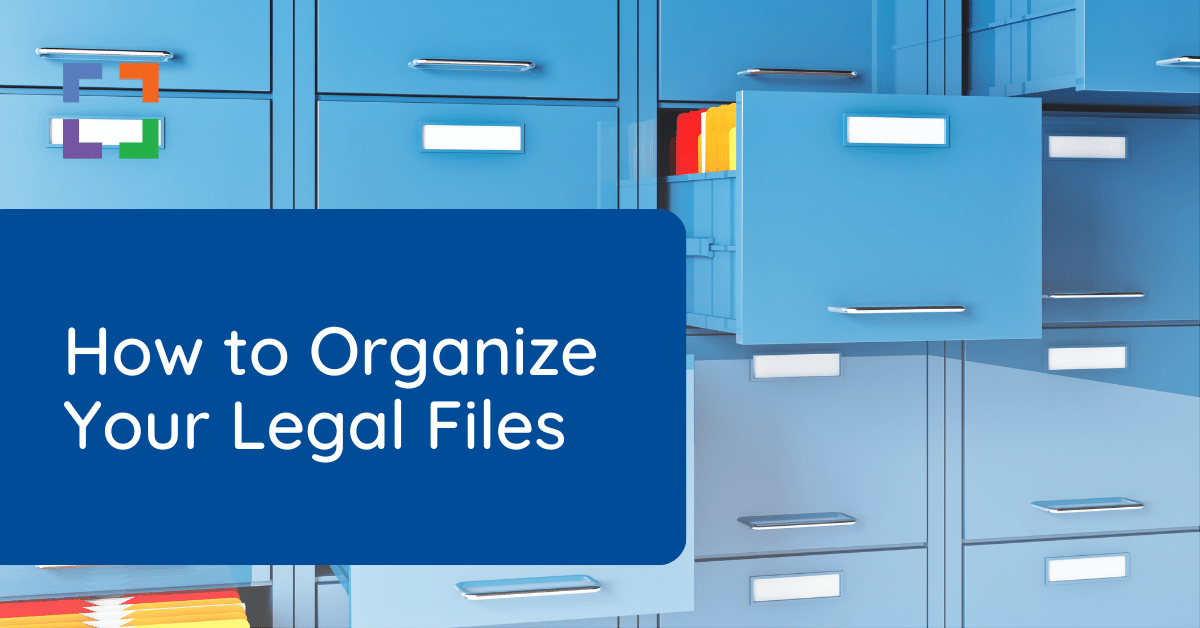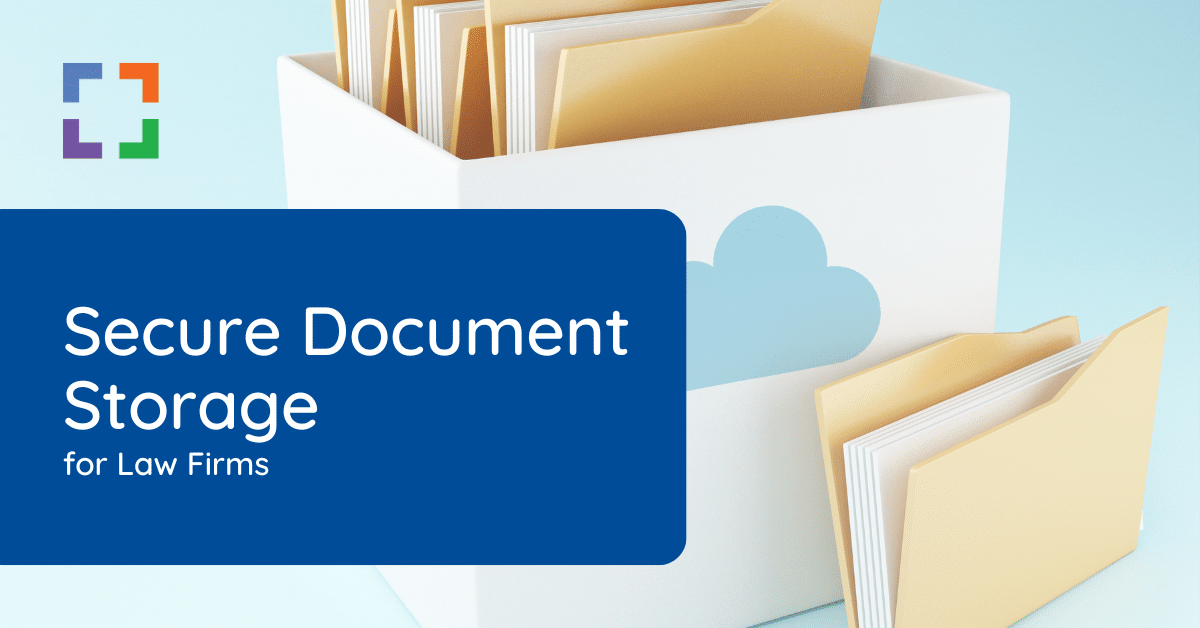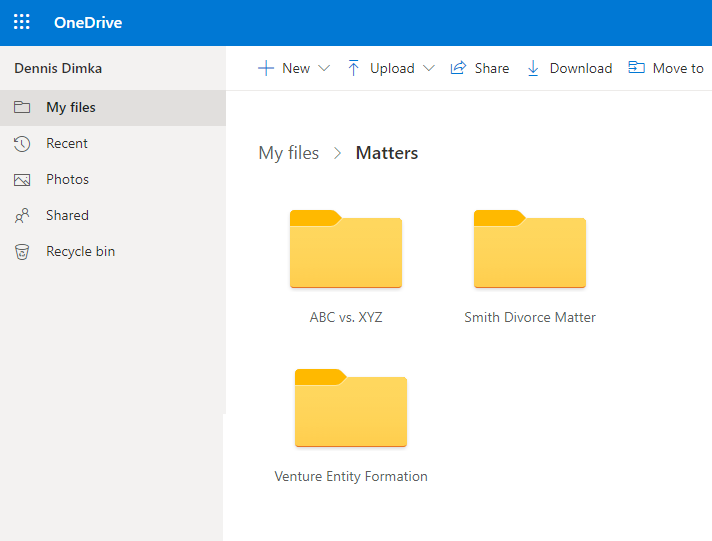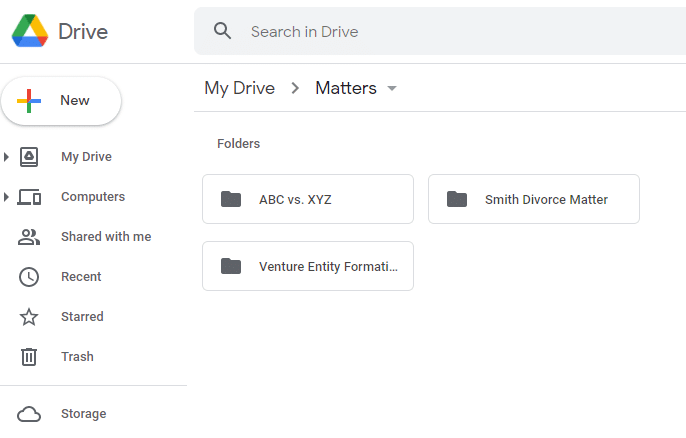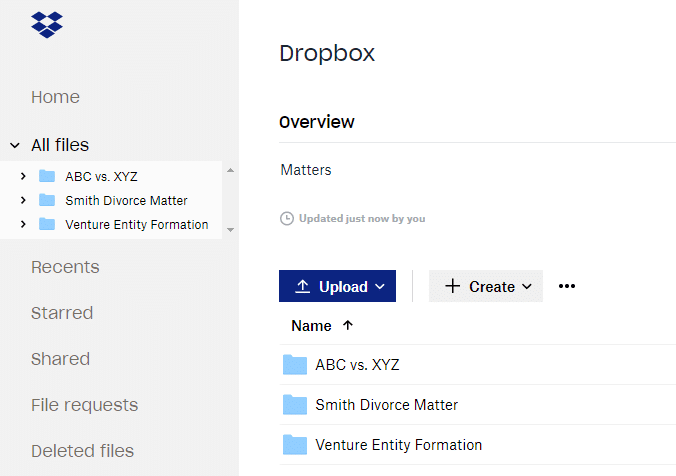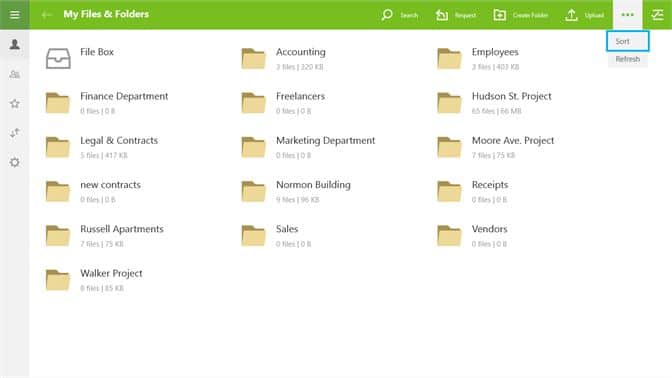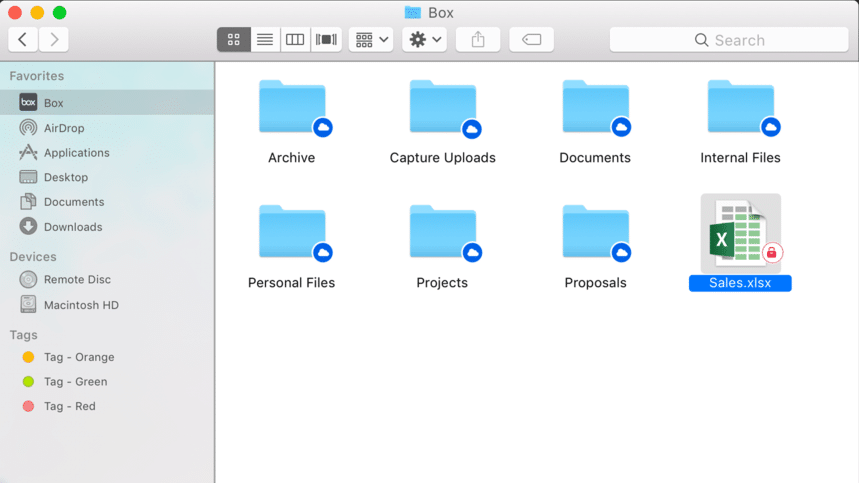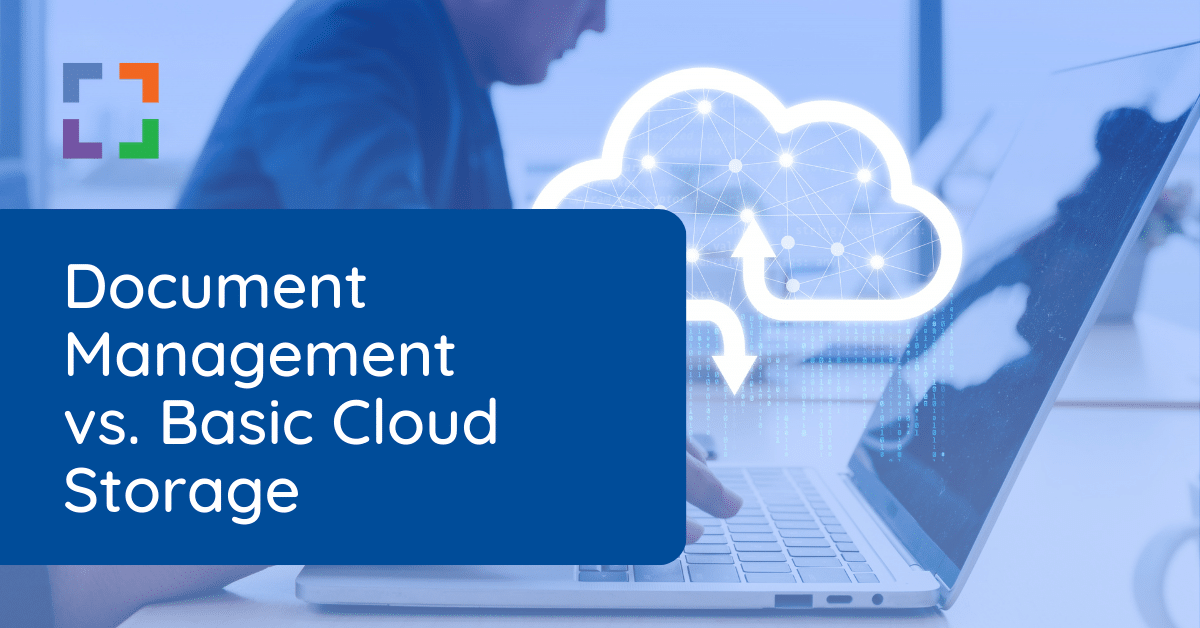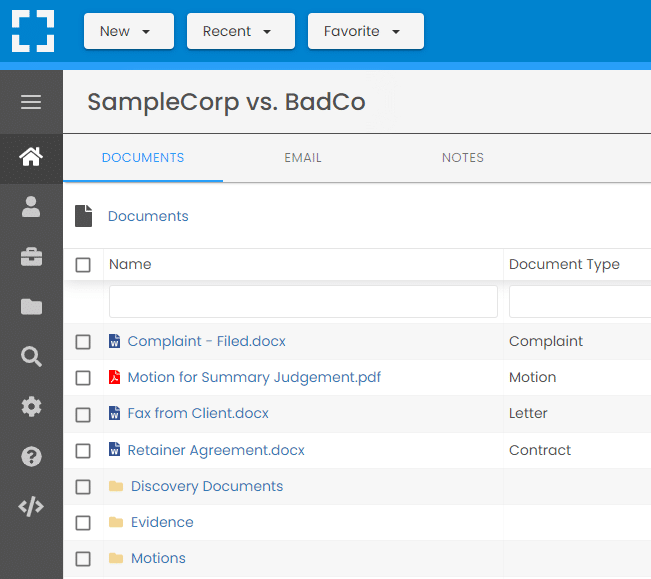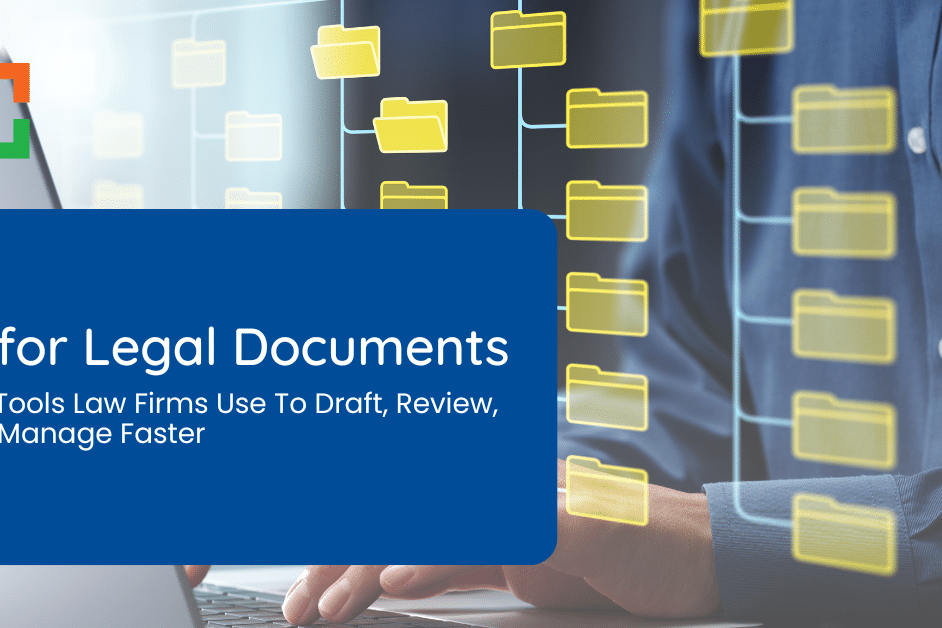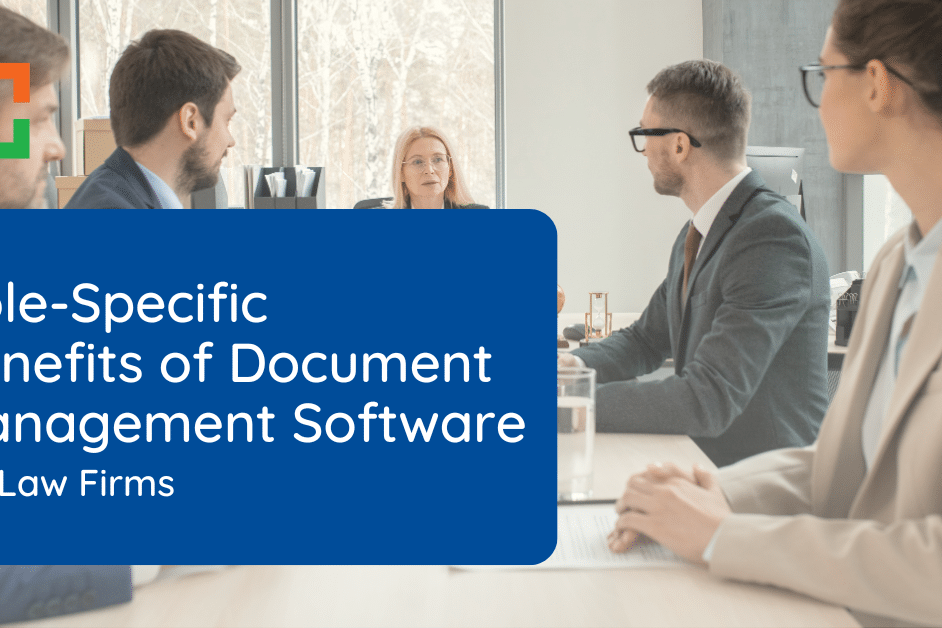Best Cloud Storage for Law Firms in 2025
 Law firms handle vast amounts of sensitive information—pleadings, contracts, discovery materials, client correspondence—and choosing the right storage solution is critical.
Law firms handle vast amounts of sensitive information—pleadings, contracts, discovery materials, client correspondence—and choosing the right storage solution is critical.
In this concise guide, you will:
- Learn which security and usability features matter most for legal document storage
- See how five popular cloud services perform against those must-have criteria
- Discover how a purpose-built Document Management System (DMS) can address any remaining gaps
Ready to find the best fit for your firm? Let’s dive in.
Want to jump straight to the list of law firm cloud software? Click here!
In This Article
- Introduction to Law Firm Cloud Storage
- Essential Cloud-Storage & Security Features
- Top Basic Cloud-Storage Providers
- Why Basic Cloud Storage Falls Short for Law Firms
- Document Management Systems for Law Firms
- Free Download: Legal Cloud-Storage Comparison Chart
- Frequently Asked Questions - Best Cloud Storage for Law Firms
Introduction to Law Firm Cloud Storage
Every modern law firm uses cloud storage for essentials like remote access, automatic backups, and straightforward file sharing. Services such as Google Drive, Box, and OneDrive excel at day-to-day tasks—sharing large files, collaborating on drafts in real time, and syncing documents across devices.
They shine at basic collaboration—but legal practice often demands more:
- Direct matter linkage: Every file and email should live under its client or case, not hidden in nested folders.
- Unified search: Find what you need across documents and messages by keyword, date, or custom tag in one go.
- Case-level holds & retention: Place legal holds or retention rules on specific matters without freezing unrelated files.
- Detailed activity logs: See exactly who opened, modified, or shared each document—and when.
Because consumer-grade clouds weren’t built for these requirements, firms quickly reach their limits—and that’s where a true DMS adds value.
Related – How to Organize Legal Files: Good organization of your legal files leads to less frustration and increased success.
LexWorkplace Demo + Free Trial
Use this trial to fall in love with our:
- Helpful Demonstration and Assisted Setup
- Optimal Organizational Tools
- Seamless Email Integration
- Effective Document Management
- Ready-to-Help Consultants
Ready to Try the Last DMS You’ll Ever Want?
Essential Cloud-Storage & Security Features
When evaluating any solution—whether a generic cloud service or a dedicated DMS—it’s vital to know exactly what capabilities your firm requires.
Below is a checklist of features that separate simple file-sharing tools from platforms built to handle the demands of legal practice. Before you dive into provider comparisons, note the items your firm cannot do without.
- Windows & Mac Support: Full functionality on both operating systems.
- Folder & Subfolder Organization: Basic hierarchy for general sorting.
- Client/Matter Organization: Automatic grouping by case rather than manual folders.
- Full-Text Search: One search box that spans documents and email.
- Microsoft Office Integration: Save and open files directly from Word, Excel, and Outlook.
- Complete Encryption: AES-256 at rest, TLS/SSL in transit.
- Multi-Factor Authentication (MFA): Extra login security via a second verification step.
- Geographic Redundancy: Copies of your data stored in multiple regions for safe recovery.
- Version Management: Track, restore, and compare past drafts without extra tools.
- Tagging & Profiling: Add custom metadata to speed up searches and filtering.
- Check-Out / Check-In: Prevent conflicting edits by locking files during review.
- Permissions & Access Controls: Fine-grained settings at user, group, or matter level.
- Favorites & Recent Documents: Quick links to the files you use most.
- Unique Document IDs: A persistent identifier for every file.
- One-Click Open / Save: Instant load and save without switching windows.
- Integrated Email Management: Archive and search client emails alongside documents.
With this list in hand, you’ll spot which platforms meet your baseline—and where a dedicated DMS can deliver the extras you need.
Related – Secure Document Storage for Law Firms: Storing documents is one thing—doing it well and safely is another story. Learn how!
Related – Managed Cloud Services for Law Firms: If you choose basic cloud storage, ensure that you have help configuring and managing your tech.
Top Basic Cloud-Storage Providers
Now that you’ve identified the features your firm can’t live without, it’s time to see how the leading, off-the-shelf cloud platforms measure up.
Below, you’ll find a side-by-side look at Google Drive, Box, Dropbox, ShareFile, and OneDrive—each evaluated against the must-have capabilities you’ve already checked off.
Use this comparison to spot which services handle your core needs and where they start to fall short for legal workflows.

OneDrive
Company: Microsoft
Class: Basic Cloud Storage
Overview: OneDrive is Microsoft’s own cloud storage service, available as part of an Office 365 subscription or as a stand-alone service.
OneDrive provides simple, easy-to-use cloud storage, and aims to replace a local file server or simply be used for personal storage. OneDrive is built right into Windows, making it an easy and obvious go-to for simple storage needs.
OneDrive, however, lacks functionality required by many law firms including matter-centricity, email management, and document tagging and profiling.
STAND-OUT FEATURES
- Tight Integration with Microsoft Office
- Streamlined, Intuitive Interface
- Built into Windows 10 / Windows 11
PRICING
- OneDrive for Business - $5.00 / user / month
- Microsoft 365 Business Basic - $6.00 / user / month
- Microsoft 365 Business Standard - $12.50 / user / month
- Additional 1TB Storage: + $5 / User / Month
- Upgrade to Unlimited Storage: + $10 / User / Month
Google Drive
Company: Google
Class: Basic Cloud Storage
Overview: Google Drive, part of Google’s Suite of productivity apps, is a popular cloud storage and file backup service.
Google Drive is part of the Google Ecosystem which means its easily accessible from your Android phone and integrates with other services such as Google Docs and Google Photos. Google Drive is easy to get started with and is low-cost.
However, Google Drive lacks the sophisticated law firm cloud storage features needed by most law offices. It’s simplicity may be its biggest drawback for law firms but is perhaps a viable option if your firm is already using Google’s products.
STAND-OUT FEATURES
- Integrated Google Docs for Web-based Document Editing
- Part of Google Workspace, Available for Individuals or Teams
- Lowest-Cost Option
PRICING
- Business Starter - $7 per user / month
- Business Standard - $14 per user / month
- Business Plus - $22 per user / month
Dropbox
Company: Dropbox, Inc.
Class: Basic Cloud Storage
Overview: Dropbox was the first, and is possibly the most well-known basic cloud storage solution.
It provides easy-to-use cloud storage for individuals or teams (organizations). Dropbox, like its counterparts, includes a web app (to store and open documents from a web browser) as well as a client for Windows, Mac, IOS and Android. Dropbox can sync your file system across multiple devices. This is handy for personal use, such as keeping your desktop and laptop in sync.
However, when an entire organization’s file system is synced across many computers, conflicts and files becoming out-of-sync can be a common problem.
STAND-OUT FEATURES
- Turn Folders into ‘Spaces’ – With Descriptions and Notes
- Long-Running, Mature Cloud Storage Product
- Starter Plan is Free
PRICING
- Basic – Free
- Plus – $11.99 / Month (1 User)
- Professional – $19.99 / Month (1 User)
- Standard - $18 / user / month (3+ Users)
- Business Plus - $30 / user / month (3+ Users)

ShareFile
Company: Citrix
Class: Basic Cloud Storage
Overview: ShareFile, by Citrix, works to set itself apart as the business-class edition of an otherwise consumer-focused world of cloud storage.
To its credit, ShareFile boasts enhanced security, options for compliance and enhanced workflow tools that allows users to create repeatable process for documents. ShareFile also serves as an easy but secure way to share files with outside parties.
ShareFile is not, however, a full-fledged Document Management System and as a result lacks much of the nuanced functionality required by many law firms.
STAND-OUT FEATURES
- Additional Emphasis on Security Features
- Granular and Flexible User/Group Permissions
- Virtual Data Room Option
PRICING
- Advanced – $17.60 / User / Month (3+ Users)
- Premium – $27.50 / User / Month (3+ Users)
- Industry Advantage – $45..83 / User / Month (3+ Users)
- Virtual Data Room – $75 / User / Month (5+ Users)

Box
Company: Box, Inc.
Class: Basic Cloud Storage
Overview: Box is similar to its counterparts but also attempts to be the more business-class focused cloud storage service.
Box describes its product as a platform where users can secure, share and edit documents and integrate with other cloud apps. Add-ons include a note-taking app, management tools for IT administrators and more.
Like the others in this list, Box may work for a generic business but unfortunately lacks much of the legal-focused functionality required by law firms such as built-in OCR and matter-centricity.
STAND-OUT FEATURES
- Share Files With Outside Users
- Create Document Workflows
- Many Integrations with Other Application
PRICING
- Business: $20 / User / Month (3+ Users)
- Business Plus: $33 / User / Month (3+ Users)
- Enterprise: $47 / User / Month (3+ Users)
- Enterprise Plus: $50 / User / Month (3+ Users, Must Pay for Full Year)
Why Basic Cloud Storage Falls Short for Law Firms
Even the most robust off-the-shelf clouds leave critical gaps once your firm’s needs go beyond simple file sharing.
Consider these limitations and drawbacks when evaluating cloud storage for your firm.
In short:
- Poor Organization: Basic cloud storage lacks the client/matter-centric structure law firms need, leading to disorganized files and frustration.
- Non-Compliance: General cloud storage often replicates data overseas, risking data sovereignty issues and missing key compliance features like version history and permissions.
- No Document Management: It lacks essential tools like advanced search, tagging, versioning, and email management, crucial for law firms.
- No Email Management: There’s no integration for managing emails, making organization and searching difficult.
- Sync Issues: As teams grow, sync problems increase, causing file conflicts across devices.
Related – Document Management vs Consumer-Grade Cloud Storage: Learn about the differences and make informed decisions.
Document Management Systems for Law Firms
That concludes our list of the top Law Firm Cloud Storage platforms. If your firm is considering new cloud-based file storage options, we recommend carefully evaluating your firm’s objectives and needs.
You may also find that you need a little more than basic cloud files and folders. Consider the advantages of a true Document Management System (DMS) for your law firm as well.
The right legal document management software can be as simple to use as basic cloud storage, but with additional tools and capabilities to manage documents (and email).
Introducing LexWorkplace: A Legal-Centric DMS
When your firm outgrows basic clouds, LexWorkplace offers purpose-built features to streamline legal document workflows.

LexWorkplace
Company: Uptime Legal
Class: Cloud-based Document Management
Overview: LexWorkplace is both business-class cloud storage and a legal-centric document management system (DMS) that works with Windows and Mac. LexWorkplace will keep your documents, email and notes organized by matter, indexed and searchable.
LexWorkplace includes document versioning, powerful search, integrated OCR, scan and fax integration, Microsoft Office and Outlook integration and document tagging/profiling.
STAND-OUT FEATURES
- Complete Windows and Mac OS Support
- Client/Matter-Centric Organization
- Full-Text Search Across all Documents & Email
- One-Click Open, One-Click Save
- Document Version Management
- Email Management (Save Emails to a Matter from Outlook)
- Document Profiling & Tagging
PRICING
- Base Package: $395 / Month
- Includes 3 Users, 1 TB Storage
- Additional User: + $45 / Month
- Additional 100 GB Storage: + $40 / Month
LexWorkplace combines the convenience of cloud storage with the advanced controls and workflows that law firms demand—ensuring you spend less time wrestling with documents and more time practicing law.
LexWorkplace Success Story
See how one law firm uses LexWorkplace to organize their documents and streamline their practice.
Book a 15-Minute Demo
Free Download: Legal Cloud-Storage Comparison Chart
Making side-by-side feature comparisons by hand is time-consuming—and easy to get wrong.
That’s why we’ve created a free Legal Cloud-Storage Comparison Chart covering all the essentials in one place.
Inside the Chart You’ll Find:
- Security & Encryption (AES-256, TLS/SSL)
- Compliance & Certifications (SOC 2 Type II, ISO 27001)
- Versioning & Redline Capabilities
- Audit Trails & Permission Controls
- Matter-Centric Organization vs. Folder Structure
- Full-Text Search & Email Indexing
- Key Integrations (Clio, MyCase, PracticePanther, QuickBooks, DocuSign)
- Pricing Models (per GB vs. per user, tier breakdowns)
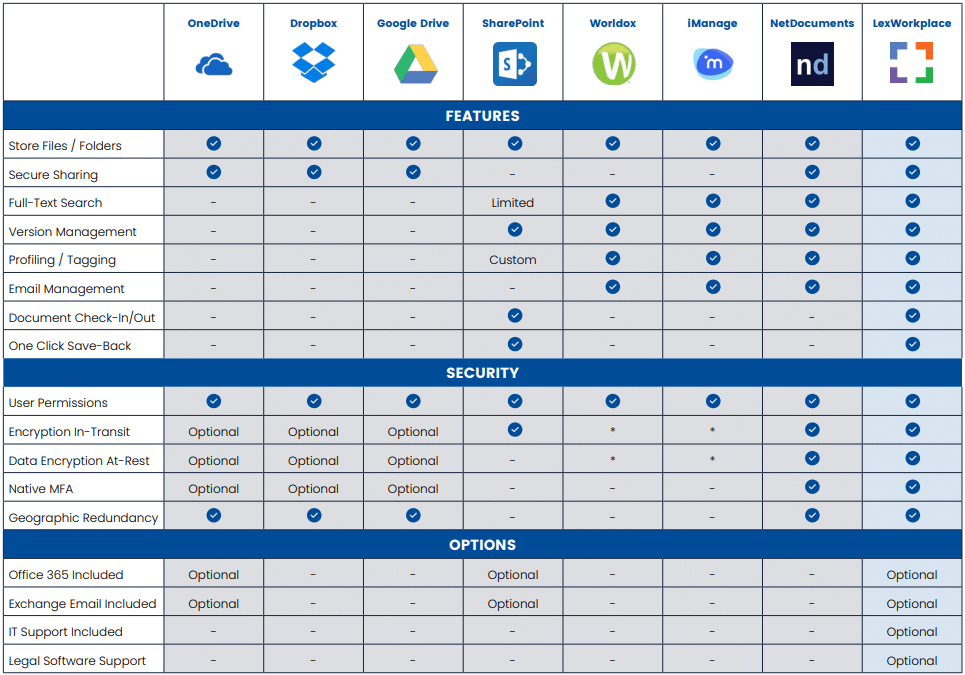
How It Helps You Decide Quickly:
- Identify which platforms hit your must-have features at a glance
- Spot gaps where basic clouds fall short of legal requirements
- Compare costs and storage options side by side
👉 Download the Free Legal Cloud-Storage Comparison Chart and get a clear picture of which solution fits your firm’s needs.
Frequently Asked Questions - Best Cloud Storage for Law Firms
Cloud storage enables access to documents from anywhere, improves security and compliance, and eliminates the need for VPNs.
Cloud storage offers basic file storage, while a DMS provides features like document tagging, full-text search, and version control.
Services like OneDrive, Google Drive, and Dropbox are suitable for smaller firms needing basic storage solutions.
Law firms handle sensitive data and must comply with regulations like HIPAA, requiring strong encryption and authentication.
Common issues include limited document management features, syncing problems, and lack of email management.
Yes, cloud solutions offer scalable storage based on usage, which can be more cost-effective than on-premise servers.
Look for full-text search, document versioning, data encryption, and support for both Windows and Mac.
DMS platforms offer advanced features like matter-centric organization, integrated email management, and document profiling.
Yes, many cloud storage providers offer tools to help law firms comply with data security regulations like HIPAA.
Popular options include Microsoft OneDrive, Google Drive, Dropbox, and LexWorkplace for more robust legal-centric needs.
Looking for Document Management Software?
LexWorkplace:
Modern Document Management for Law Firms
LexWorkplace is document & email management software, born in the cloud and built for law firms. Here’s a quick primer on how it works, or get your free trial to discover LexWorkplace for yourself.
Organize by Client & Matter
Organize documents, email and notes by client or matter. Store and manage all data for a case or project in one place.
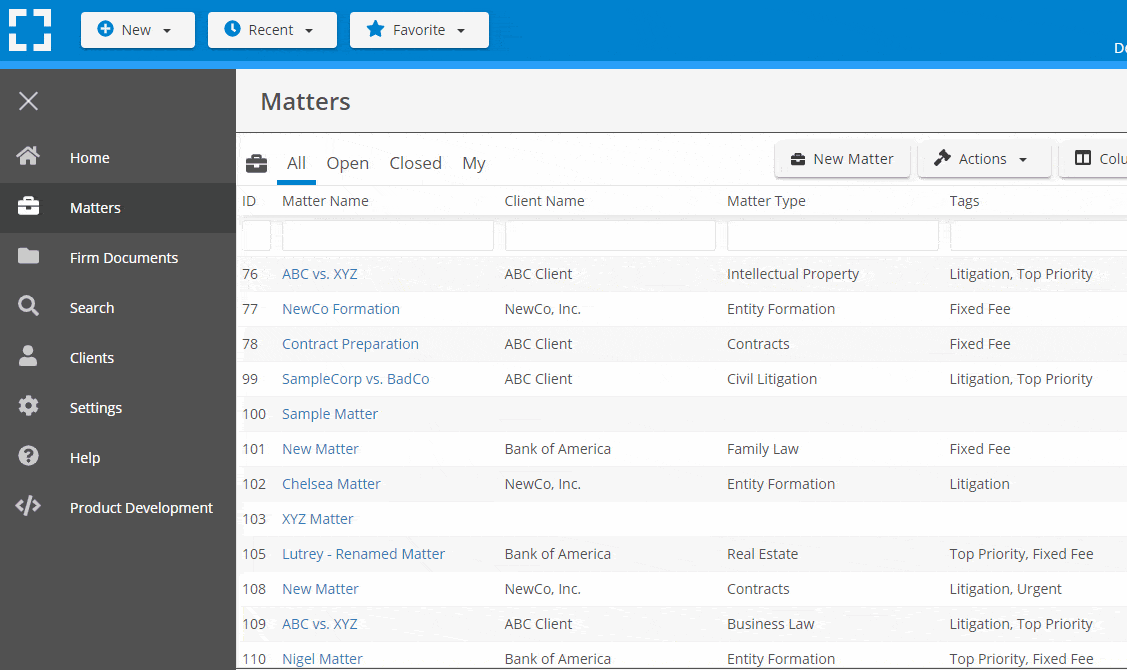
Go Beyond Basic Files & Folders
Supercharge your firm’s productivity with true DMS functions.
- Version Management
- Document Tagging & Profiling
- Document Check-Out / Check-In
- Microsoft Office Integration
- Automatic, Integrated OCR
- Convert Word Docs to PDF
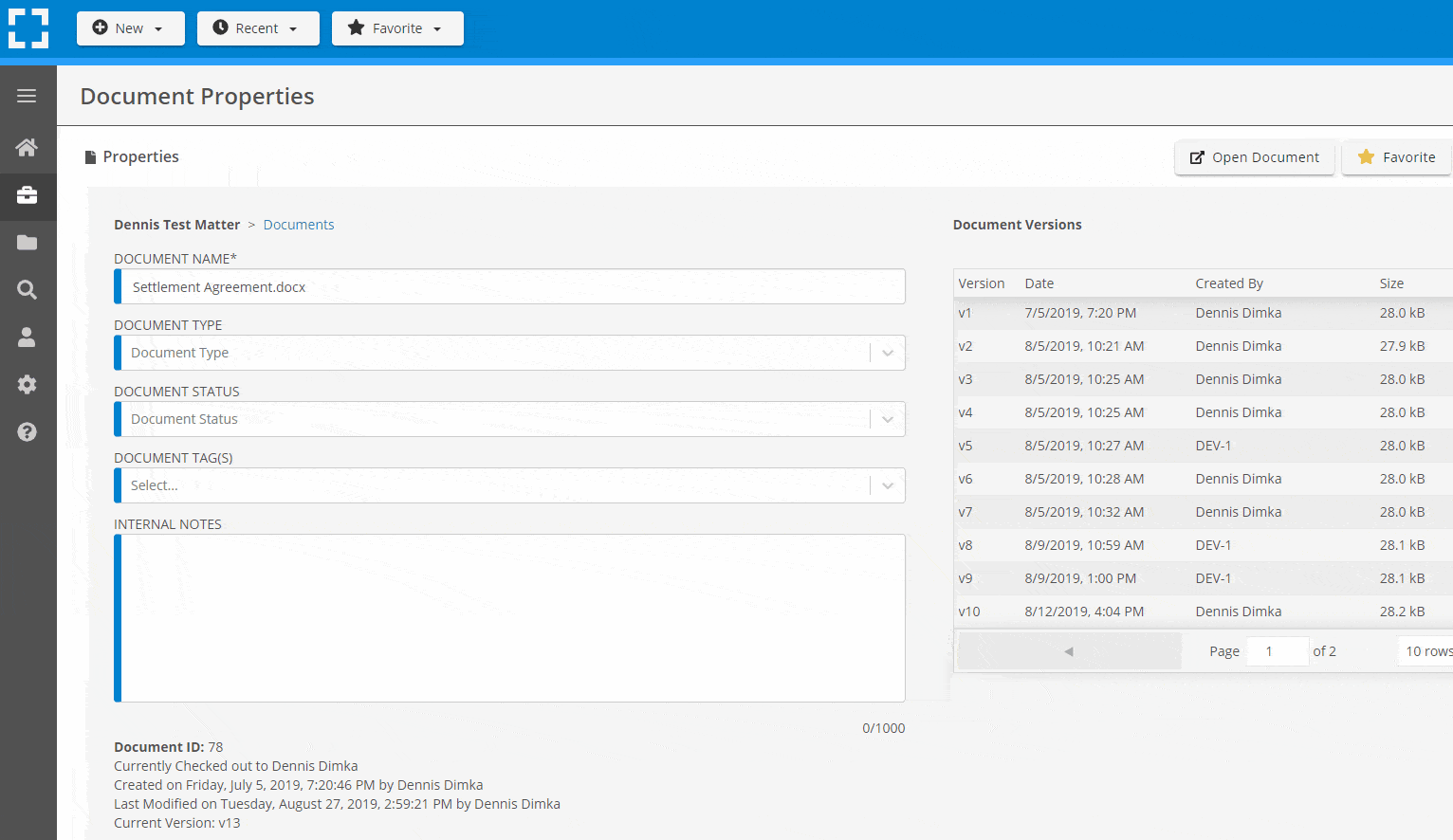
Search Everything
LexWorkplace is like Google for your law firm. Search across millions of pages, documents, folder email and notes in seconds. Refine your search by matter, document type, author and more.
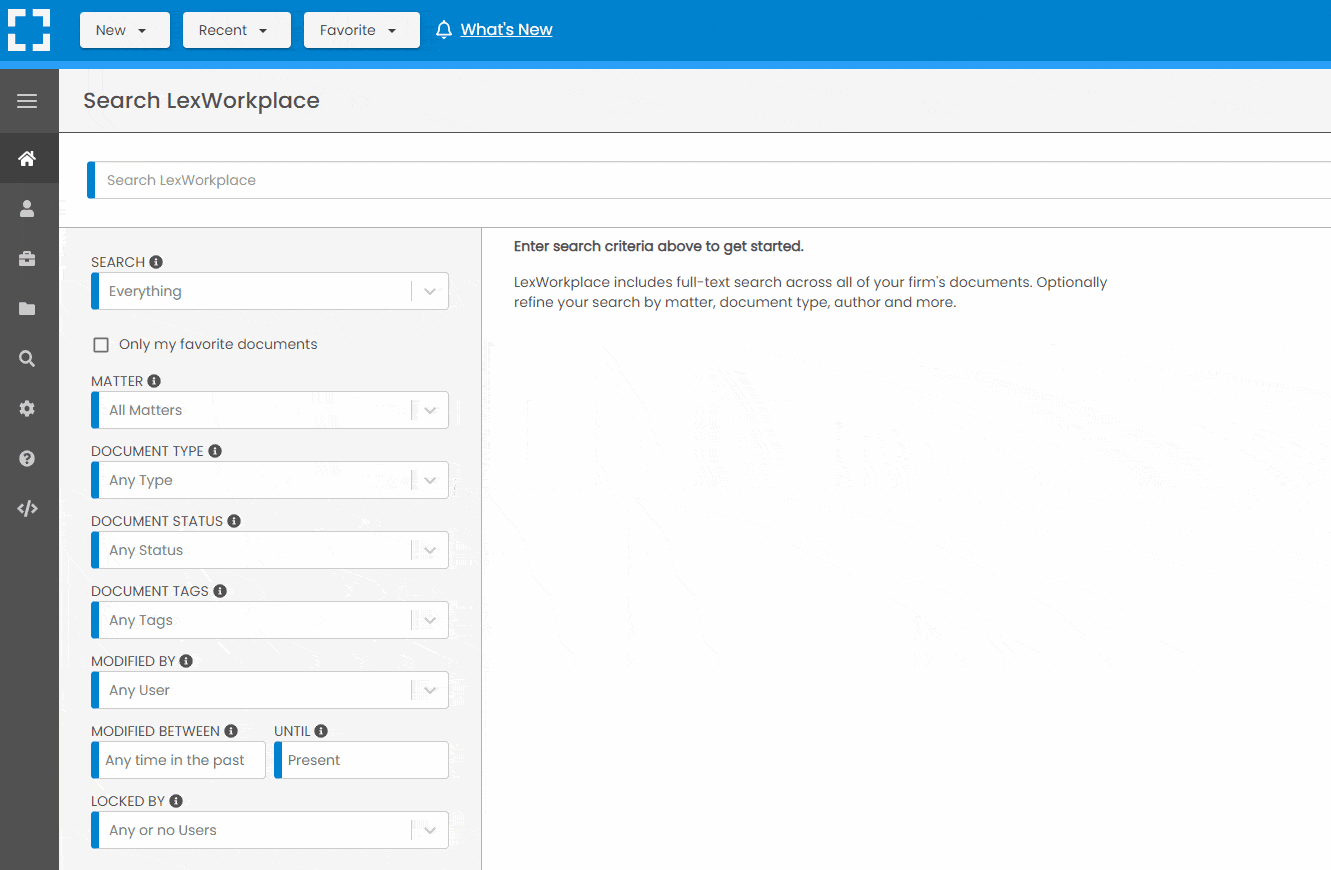
Search by…
- Client or Matter
- Document Type (Contract, Complaint, Order, etc.)
- Document Status (Draft, Final, etc.)
- Document Tags (Filed With Court, Fully Executed, etc.)
Outlook Integration + Comprehensive Email Management
Save emails to a matter without leaving Outlook. Saved emails are accessible to your entire team, organized and searchable.
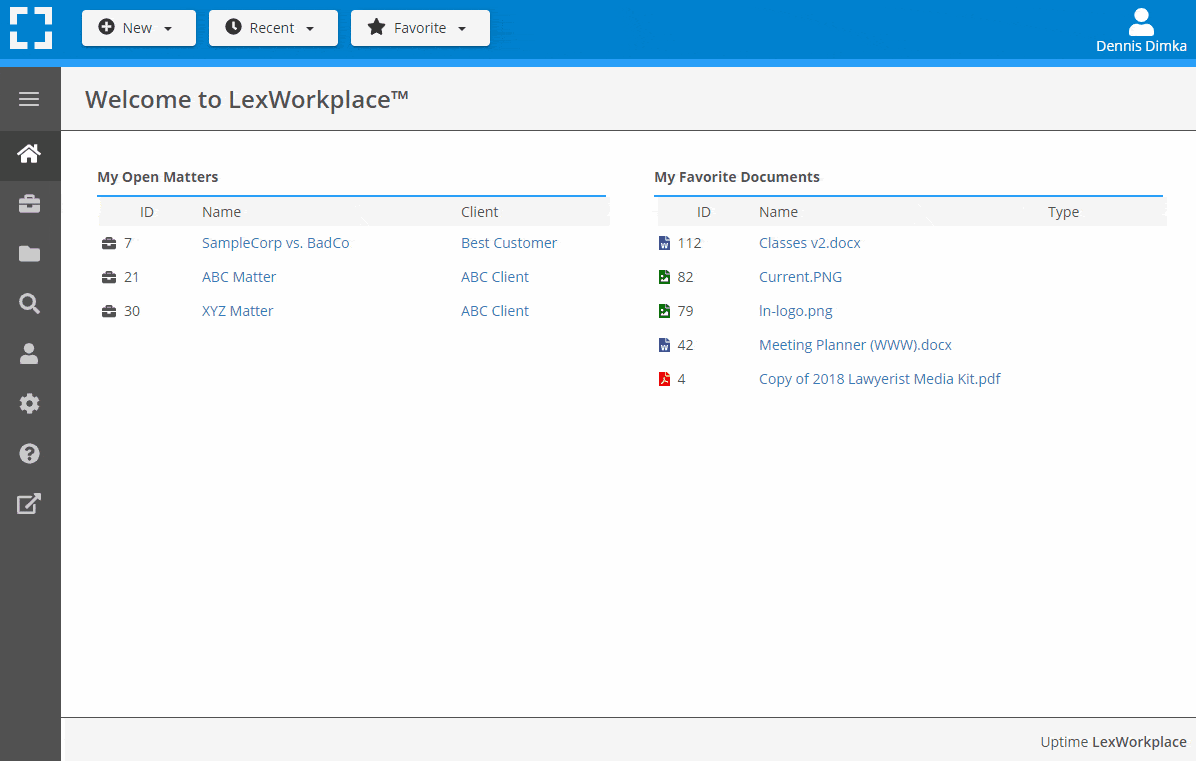
- Outlook Add-In that Works With Windows and Macs
- Save Entire, Original Email to a Matter in a LexWorkplace
- Email De-Duplication
- Organize Emails into Folders, Subfolders
Works with Windows and Macs
All of LexWorkplace is compatible with both Windows and Mac computers.
Next Steps
See What Clients Have to Say
Lawyers love LexWorkplace. See how the system streamlined one lawyer’s practice.
Watch the 5-Minute Demo
See LexWorkplace in action in our quick 5-minute overview and demonstration.
Or, if you want a one-on-one demo, or want to talk about LexWorkplace for your firm, schedule a call or demo below.
You Might Also Like
August 19, 2025
AI for Legal Documents: Top Tools Law Firms Use To Draft, Review, and Manage Faster
Struggling with slow legal document…
August 12, 2025
Why Law Firms Can’t Afford to Delay DMS Migration — And How to Switch Smoothly
Tired of costly, stressful tech…
June 23, 2025
Role-Specific Benefits of Document Management Software for Law Firms
Legal document management software…
Want More Legal Technology Tips?
Subscribe to Uptime Legal to get the latest legal tech tips and trends, delivered to your inbox weekly.
